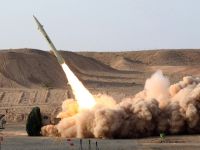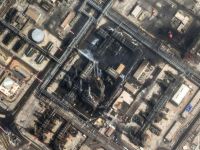On the east coast of the Oil Producing Export Country (OPEC) member UAE, will grow in importance as an oil trading hub with the opening of a pipeline that allows the UAE to export most of its crude without having to sail tankers through Hormuz. With 1 million barrels of crude already flowing through the new pipeline into storage tanks on the Gulf of Oman coast, Abu Dhabi National Oil Company (Adnoc), expects to load its first cargo soon. The new pipeline, the Abu Dhabi Crude Oil Pipeline Project (Adcop), and a planned refinery are expected to add 12 million barrels of storage when completed. Adnoc already has 8 million barrels of crude storage just north of Fujairah.
Securing strategic oil storage space at Fujairah has been a top priority for oil producers and trading houses. But it faces rising competition from the port of Sohar, down the coast in small non-OPEC producer Oman, which is also expanding its facilities by upgrading a refinery. Several oil traders have already secured oil storage space in Sohar.
Port of Fujairah, UAE
Fujairah’s oil storage capacity is expected to rise to nearly 6.8 million cubic meters (mcm) in late 2012 from around 5.8 mcm now, while further expansion could take capacity to near 10 mcm by late 2014. Vitol, the world’s largest oil trader, has around 1.1 mcm of storage at the port through Fujairah Refinery Company Ltd (FRCL), which is owned by Vitol Tank Terminals International (VTTI) and 10 percent by the Fujairah government.
Trade sources say all of the oil products stored in its 47 tanks are owned by Vitol. Vopak Horizon Fujairah Limited (VHFL), a joint venture between the Netherlands-based Royal Vopak, Dubai’s Emirates National Oil Company (ENOC), the government of Fujairah and Kuwait’s Independent Petroleum Group added 600,000 cubic metres of capacity in early May. Currently Vopak Horizon has a total of 2.1 mcm of storage and a trade source says all tanks are leased out. Leading commodities and oil traders like Trafigura, Total’s Totsa as well as PetroChina, a relatively new entry in the Gulf trading market, are among the tenants of Vopak’s tanks. Latest expansion added 20 new tanks for storing fuel oil and clean petroleum products. BP has 200,000 cubic metres of storage of this while Phillips 66, independent US refiner as a result of ConocoPhillips spin-off, has 160,000 and Litasco, the trading arm of Russian oil company Lukoil, has 240,000 cubic metres.
UAE-based trader Gulf Petrochem’s 412,000 cubic metres of oil storage is planned to come online in September. UAE’s fuel retailer Emarat currently has 263,000 cubic metres of oil storage capacity following its expansion in 2011. With the addition of 10 more tanks the company now has a total of 13 tanks for gas oil, gasoline and jet fuel. Azeri national oil company Socar’s trading arm is building 641,000 cubic metres of storage capacity in a joint-venture with Swiss trading house Aurora Progress and the government of Fujairah. It will consist of 20 tanks for clean and dirty products once the full project completed. The first phase with 114,000 cubic metres came online in March. Global marine fuel supplier Chemoil Energy has storage of around 90,000 cubic metres at the port through a joint venture with Gulf Petrol Supplies and plans to boost it to 675,000 cubic metres by the third quarter of this year.
Glencore, the world’s largest independent commodities trader, raised its stake in Chemoil to 89 percent in February, after taking a controlling stake in late 2009. Singapore-based Concord Energy and China’s Sinopec are expected to start building oil storage in Fujairah. The total capacity will be 1.125 mcm and around half of this will be leased to Sinopec. It is due to be completed by early 2014. Dubai government-owned fuel retailer Enoc has oil storage through its joint venture with VHFL and it also owns 217,000 cubic metres of capacity at 11 tanks through its subsidiary Horizon Terminals. PetroChina has sublet clean storage at Fujairah from an existing customer, after its plans to build from scratch with Vopak were scrapped.
Sohar, Oman
The Port of Sohar, a deep-sea port in the Sultanate of Oman is managed by Sohar Industrial Port Company, a joint venture between the government of Oman and the Dutch port of Rotterdam.It has 1.285 mcm of oil storage, all allocated for clean products and all currently leased out and full, trade sources said. Of the total, Gunvor has around 180,000 cubic metres of storage for distillates and gasoline while Shell has a total of 485,000 cubic metres, of which 325,000 cubic metres is for gas-to-liquids (GTL).
Oman Trading International (OTI) has around 200,000 cubic metres of storage for light and middle distillates while Glencore’s 114,000 cubic metres of storage is mostly for naphtha and gasoil. Oman Aromatics, part of Oman Oil Refineries and Petroleum Industries Company (Orpic) also leases 303,000 cubic metres of storage space at the port. Sohar is also home to a 116,000-barrels-per-day (bpd) refinery, whose capacity Oman wants to boost by some 50,000 bpd to 60,000 bpd by 2016. Traders say there are also additional storage facilities at the refinery.
Jebel Ali, UAE
Although inside the Strait of Hormuz, and so lacking the strategic benefits of Gulf of Oman sites, the UAE’s Jebel Ali port is a major regional products blending hub. It is also an important fuel storage site with over 3 mcm of capacity at the port near Dubai. Enoc is one of the biggest storage owners at the port with its 1.2 mcm of capacity.








